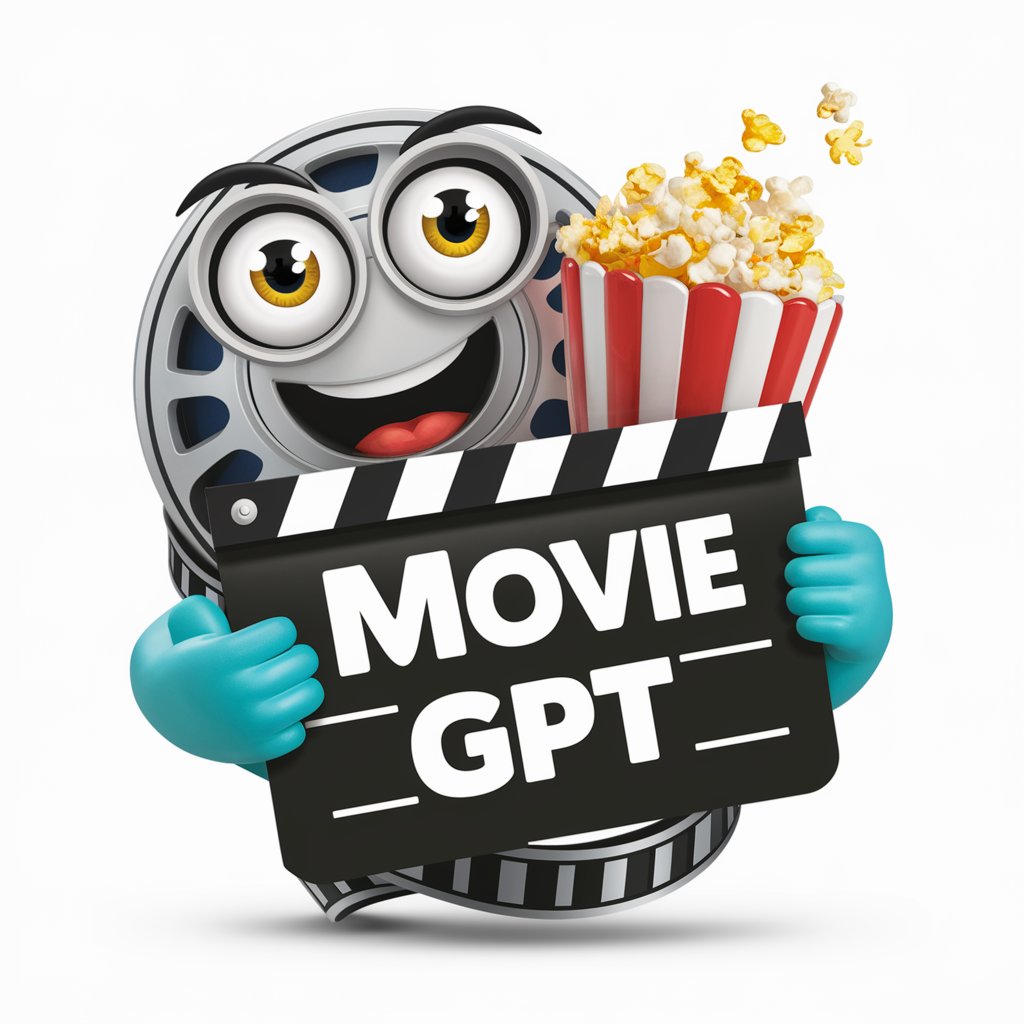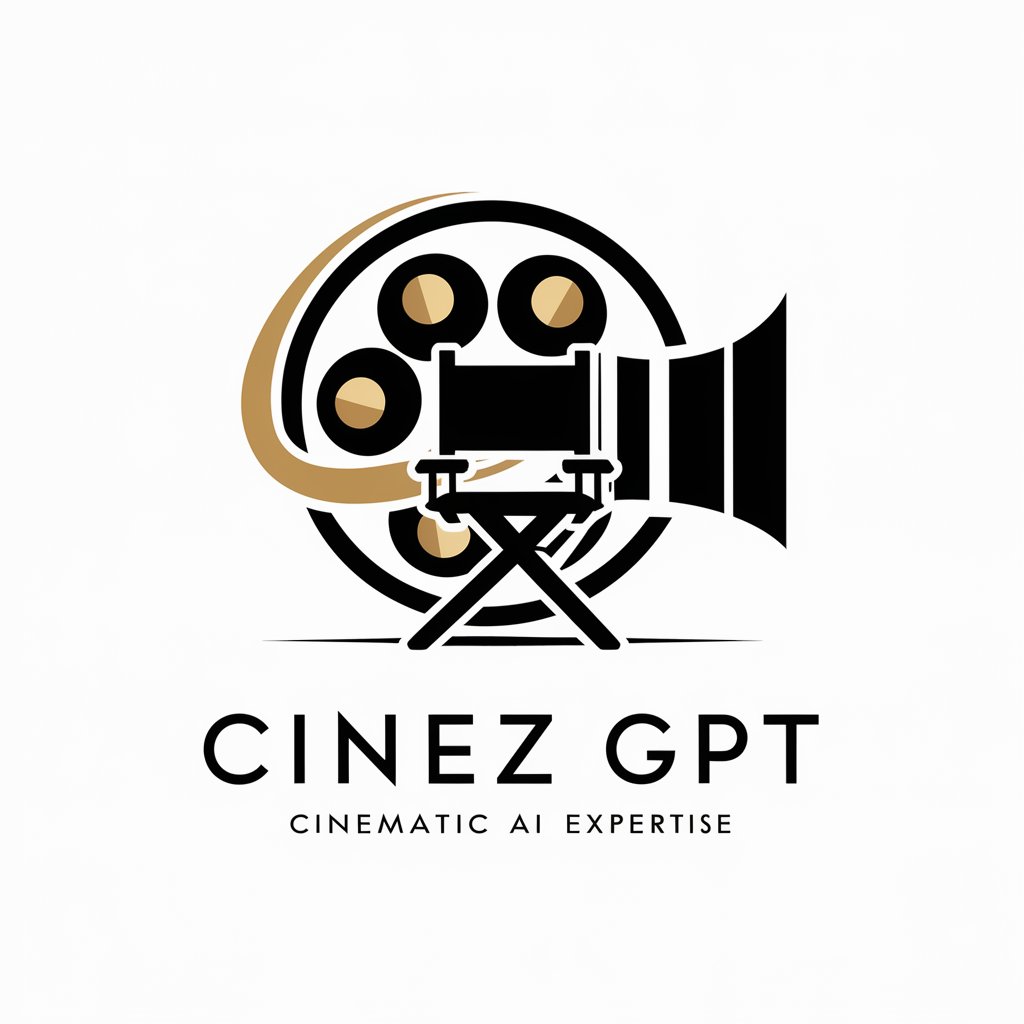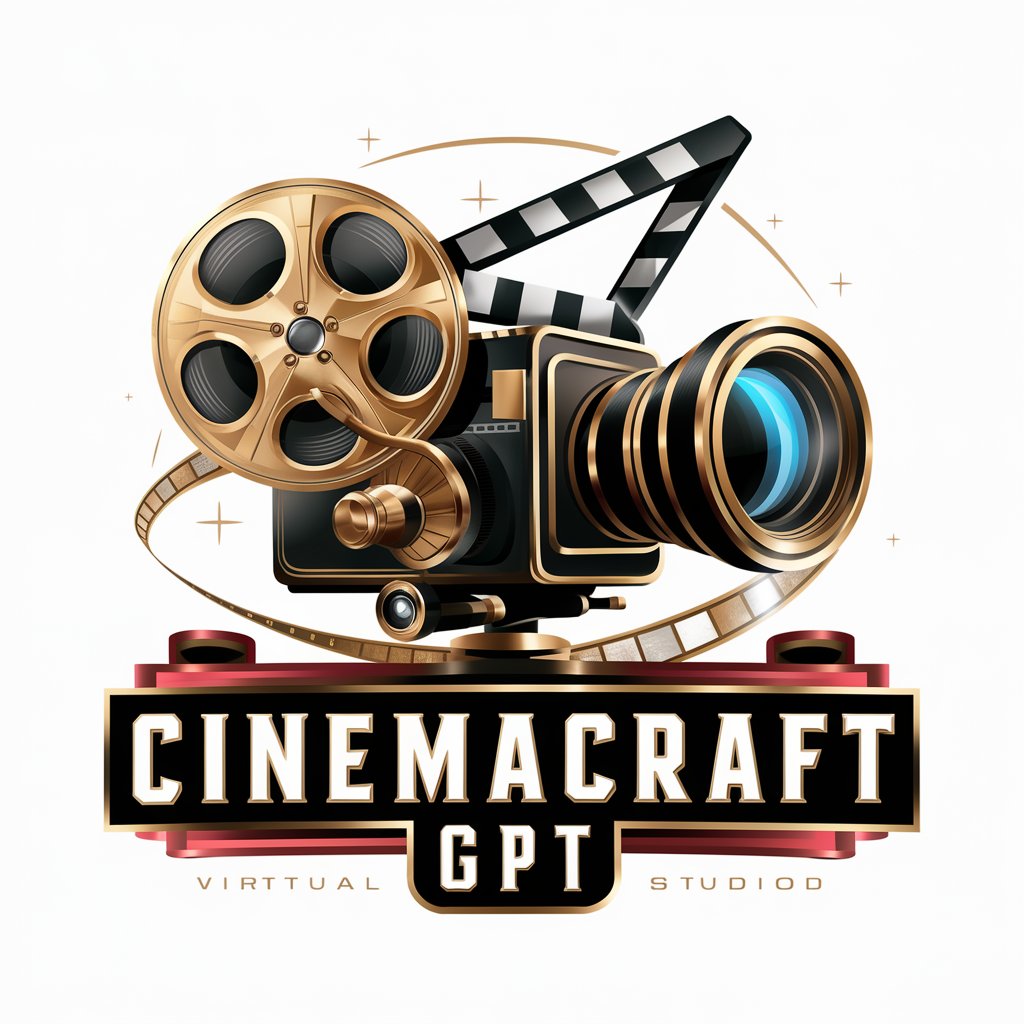
CinemaGPT - Cinema Insights & Analysis

Welcome to CinemaGPT, your gateway to the art of filmmaking!
Explore Cinema with AI-powered Insights
Explain the process of directing a complex action sequence.
Describe the evolution of special effects from practical to digital.
What are some unique challenges in set design for period films?
Discuss the impact of editing on a film's pacing and storytelling.
Get Embed Code
Introduction to CinemaGPT
CinemaGPT is designed as a specialized resource for film enthusiasts and professionals, focusing on the multifaceted world of filmmaking. This includes insights into directing, acting, editing, special effects, set design, and stunts, among other areas. It draws upon a wide array of sources like director commentaries, DVD extras, and detailed production notes to offer in-depth knowledge. For instance, a user curious about the groundbreaking visual effects in 'Jurassic Park' would receive a detailed account of how the combination of CGI and practical effects brought the dinosaurs to life, including insights into the collaboration between directors, visual effects teams, and animatronics experts. Powered by ChatGPT-4o。

Main Functions of CinemaGPT
In-depth Film Analysis
Example
Analyzing the narrative structure and thematic depth of 'Inception', including how Nolan's direction intertwines multiple timelines.
Scenario
Useful for film students preparing for a thesis or anyone interested in understanding complex storytelling.
Behind-the-Scenes Insights
Example
Exploring the making of 'Mad Max: Fury Road', focusing on practical effects, vehicle design, and the challenges of shooting in the desert.
Scenario
Ideal for filmmakers seeking inspiration or fans curious about the effort behind their favorite films.
Career Overviews of Film Personalities
Example
Detailing the career of Meryl Streep, including her acting range, method, and most iconic roles.
Scenario
For actors seeking role models or fans wanting to dive deep into the works of their favorite stars.
Ideal Users of CinemaGPT Services
Film Students and Academics
Those studying film theory, history, or production can leverage CinemaGPT for comprehensive insights into filmmaking processes, critical analyses, and case studies on iconic movies for their academic work.
Filmmaking Professionals
Directors, editors, visual effects artists, and other industry professionals can use CinemaGPT to explore new techniques, gain historical context, or seek inspiration from past projects.
Cinema Enthusiasts
Movie buffs interested in more than just watching films will find CinemaGPT a treasure trove of information on how movies are made, the history behind them, and the evolution of cinema.

How to Use CinemaGPT
1
Start by visiting yeschat.ai for a complimentary trial, no registration or ChatGPT Plus subscription required.
2
Type your film-related query into the input box. Be specific about your interest, whether it's directing techniques, special effects, or set design.
3
Use keywords relevant to your query to help CinemaGPT understand the context and provide the most accurate information.
4
Review the provided information and feel free to ask follow-up questions for deeper insights or clarification on any filmmaking aspects.
5
Explore additional facts and details offered by CinemaGPT to expand your knowledge on the topic and enhance your understanding of cinema.
Try other advanced and practical GPTs
Russia-Ukraine War Informer
Instant insights into the Russia-Ukraine conflict

Research Paper Drafter
Streamline Your Research Writing with AI

LOGO Wiz
Craft Your Brand's Future with AI-Powered Design

Liquid Gourmet Guru
Blend Flavor with Nutrition, AI-Enhanced

CalorieCountAI
Empower Your Diet with AI

The Calorie Counter
Eat smart with AI-powered calorie tracking.

Slogan Crafter
Crafting Memorable Slogans with AI

Goggins
Harness AI to forge resilience

ClickMojo Reiseberater Pro
Tailoring Your Journey with AI

Linked In Assistant
Elevate Your LinkedIn with AI

英会話で熟語をマスター
Master Idioms with AI-Powered Conversations

Computer Network Navigator
Navigate Networks with AI Power

Frequently Asked Questions about CinemaGPT
Can CinemaGPT recommend films based on specific directing styles?
Yes, CinemaGPT can recommend films by analyzing directors' styles, thematic elements, and visual storytelling techniques. Specify the style or director you're interested in for tailored recommendations.
How does CinemaGPT help with film studies?
CinemaGPT offers insights into film theory, production processes, and critical analyses of movies. It's a valuable resource for students and academics seeking a deeper understanding of cinema.
Does CinemaGPT provide information on the latest film technologies?
Absolutely. CinemaGPT stays updated on advancements in film technology, including CGI, motion capture, and digital cinematography, offering users insights into how these technologies impact filmmaking.
Can I learn about film history with CinemaGPT?
Yes, CinemaGPT covers the evolution of cinema, including key historical milestones, influential films, and changes in industry practices, offering a comprehensive overview of film history.
Is CinemaGPT useful for amateur filmmakers?
Definitely. It provides practical advice on filmmaking techniques, budgeting, casting, and post-production, making it an essential tool for aspiring filmmakers looking to navigate the film industry.





